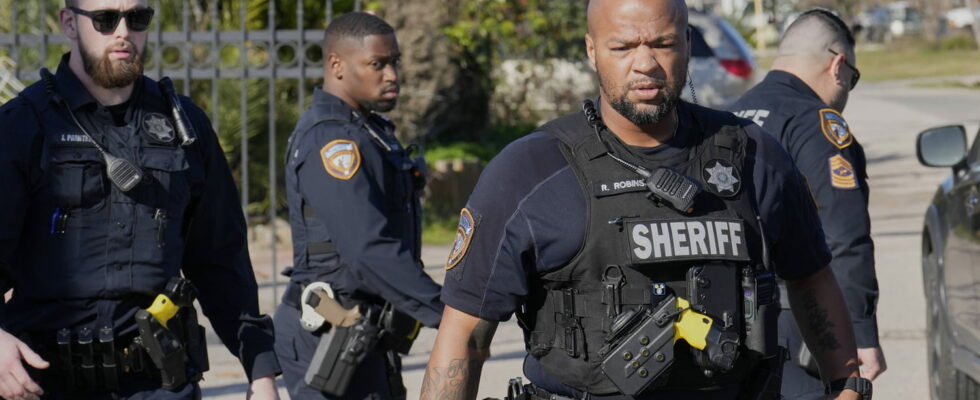Contrary to President-elect Donald Trump’s implication, the suspect in the deadly attack in New Orleans was not a “criminal who arrived” in the United States, but an American citizen, born in Texas.
“A sweetheart, a nice guy, a friend, very intelligent, caring.” These are the words in which Abdur Jabbar describes his brother, Shamsud-Din Jabbar, the assailant in the New Orleans shooting identified by the FBI. At the wheel of a white Ford van, the assailant drove “at high speed” into the crowd on the night of Tuesday December 31 to Wednesday January 1, before opening fire on the police, causing least 15 dead and dozens injured.
The driver tried to “run over as many people as he could” and “was fiercely determined to cause carnage,” New Orleans police chief Anne Kirkpatrick previously stressed. “The perpetrator shot our officers from his vehicle when it was in an accident. Two of them were hit. Their condition is stable,” she said. The latter corroborates the hypothesis of Mayor LaTroya Cantrell who evokes a “terrorist attack”. For its part, the FBI said it was treating the matter “with the police as an act of terrorism”. During the shootout with law enforcement, the 42-year-old man was shot and killed.
Complex links with the Islamic State
Several clues seem to indicate a link between the attacker Shamsud-Din Jabbar and the Islamic State (IS). A flag of the jihadist group was found by the FBI in the vehicle used by the attacker. Furthermore, according to US President Joe Biden, “just a few hours before the attack”, the suspect had “published videos on social networks indicating that he was inspired by ISIS”. These videos also testify to a “desire to kill”, he added, before specifying that he had this information from the FBI, in a speech from the Camp David residence, near Washington.
However, the profile of the main suspect raises questions. Especially since he was decorated multiple times during his years of service. He received several decorations including the Global War on Terrorism Service Medal, indicate several American media such as Fox News and the Wall Street Journal. This medal, created in 2003 by former President of the USA George W. Bush, rewards soldiers deployed in the “war on terrorism” after the attacks of September 11, 2001.
Shamsud-Din Jabbar, a former Texan soldier
Faced with the scale of the attack, President-elect Donald Trump spoke on his social network, Truth Social, and established a barely implied link between illegal immigration and the attack in New Orleans: “When I said that the criminals coming in are far worse than the criminals we have in our country, that statement has always been refuted by Democrats and the fake news media, but it has been proven to be true.” But the billionaire forgot an important detail: the suspect was an American citizen.
Shamsud-Din Jabbar, “born and raised in Beaumont, Texas”, was not of immigrant origin, as indicated in a video dating from 2020. In it, the assailant explains with a typical accent of southern United States, how his experience in the military benefited him in his new career as a property manager. Indeed, the veteran had left the army in an “honorable” manner according to the FBI, after being incorporated from 2007 to 2015, finishing as a staff sergeant, according to the Department of Defense. As for his criminal record, he mentions two facts, not very aggravating: a theft in 2002 and driving with an invalid license in 2005, revealed the New York Times.
Contacted by the New York daily, one of his childhood friends described him as a person who “didn’t create problems” and “had good grades.” The retired soldier indicates that he resumed contact with him on social networks in 2017 but that he “never detected any threatening behavior”. However, “you could see that he had become really intense about his faith,” he adds. The suspect’s brother, Abdur Jabbar, for his part indicated that Shamsud-Din Jabbar had converted to Islam at a young age, stressing that his act “does not represent Islam. But rather a form of radicalization” .
